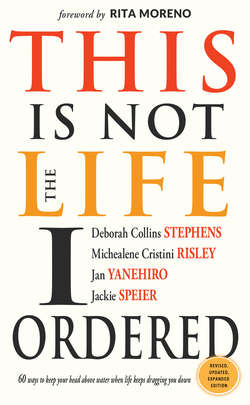Читать книгу This Is Not the Life I Ordered - Deborah Collins Stephens - Страница 18
На сайте Литреса книга снята с продажи.
Three Minutes from Death
Оглавление“People began screaming and crying, some parents engaging in a tug-of-war over their children—one wanting to go; the other wanting to stay. So many people had decided to escape the People's Temple that the consulate had to order another plane.
“We left for the airstrip. Dressed in an oversized yellow poncho, Larry Layton, Jones' assistant, seemed overly eager to board the cargo plane. I distrusted him and asked that he be searched before boarding. A journalist patted him down, but did not find the gun Layton had hidden under his poncho. Thinking back, I now realize how helpless we were—a congressman, congressional aides, journalists, and cameramen; not one among us a police officer or military escort. We had nothing to protect us other than the imagined shield of the invulnerability of a US congressman and members of the US press corps.
“Suddenly, we heard a scream. Seconds later, I heard an unfamiliar noise. I saw people running into the bushes and realized that the noise was gunfire. I dropped to the ground and curled up around a wheel of the plane, pretending to be dead. I heard footsteps. I felt my body twitch as someone pumped bullets into me at point-blank range. I was shot five times.
“The gunmen continued to walk around the tarmac, shooting innocent people. Soon it was quiet. I opened my eyes and looked down at my body. A bone was sticking out of my arm, and blood was everywhere. I remember thinking: My God, I am twenty-eight years old and I am about to die. I yelled out for Congressman Ryan, calling his name several times. There was no answer.
“The plane's engine was still revving, and I thought that if I could just get to the cargo hatch, I could escape this place. I crawled toward the opening, dragging my body as close as I could to the baggage compartment. A reporter from the Washington Post picked me up and put me into the cargo hold. I remember asking him if he could give me something to stop my bleeding, and he gave me his shirt. I was losing so much blood that the shirt was soaked in seconds.
“The plane was filled with bullet holes, and we soon realized that it would never make it out of this hell on earth. Someone pulled me out of the plane and placed me back on the airstrip. Accidentally, they laid my head upon an anthill and ants started crawling all over me. Lying next to me was a reporter's tape recorder. I taped a last message to my parents and brother, telling them that I loved them.
“Supposedly, the Guyanese Army was going to secure the airstrip and rescue us, so I held on tightly to the belief that the army would come. It grew dark, and we continued to wait. Although I was in excruciating pain, I clung to life.
“In the middle of the night, word reached those on the tarmac that there had been a mass suicide at the People's Temple. At one o'clock the next day, twenty hours after the shootings, the Guyanese Air Force arrived. Their arrival coincided with a message to the world that more than 900 people, including a US congressman and members of his delegation, were dead. The headlines called it the worst mass suicide in history. To this day, I still refer to the events at Jonestown as a mass murder.
“The Guyanese Air Force transported the survivors to a waiting US Air Force Medivac plane. Etched in my mind is the memory of how I felt at that very moment, as if someone had wrapped me in the American flag. I was so grateful.
“Loaded with survivors, the Air Force plane set off for the United States. As we taxied down the runway, I recall glancing down at my body. It seemed so surreal, as if the mangled lump of flesh belonged to someone other than me. Months later, I was told that the medical technician who tended to me during the flight said that I was three minutes from death.”
